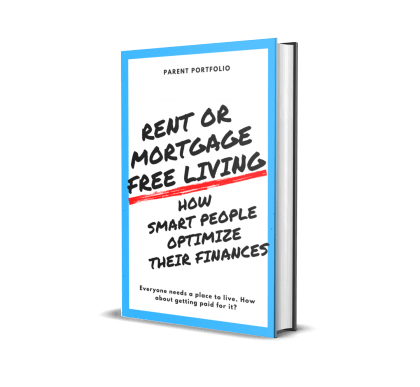5 Easy Steps to Pay Off Debt and Plan for Retirement

The problem with the debt cycle is that it’s so easy to fall into it yet so hard to get out of. Once you’re stuck in this rut, it feels as if you’re living life in a never-ending cycle of debt. Moreover, no matter how hard you try to stay out of debt, there may be circumstances in your life that just render this pursuit impossible.
If you find yourself in this situation, I want you to know that you’re not alone. Millions of people have been in your same situation and have successfully climbed their way out of debt.
Many people are seeking ways to minimize debt, if not eliminate it for good. However, with the current economic problems, many people have found themselves unable to make even the minimum payments on their credit cards. If you’re desperate to get out of debt, here are a few tips that can help you minimize debt:
1. Stop Using Your Credit Card
When trying to minimize your debt, the first thing you want to do to save more is to stop using your credit cards. By continually using them and not paying them off in full each month, you will continue your downward debt spiral, which won’t stop until you stop piling on more debt.
When you consistently use your credit card, it’s easy to let it get out of control. Many people end up spending more than they intended, worsening their debt. It gets so bad that the interest rates begin to add up, and you may have trouble paying the minimum payments. This will affect your financial ability to save for the future.
However, the good news is there are ways a person can stop using their credit card. One way is to find a new source for your purchases. The first is to eliminate all spending on things that are not absolutely necessary for your survival. Start with spending only on your basic needs and build up from there if your financial situation allows.
If your monthly situation is so dire that you need your credit card to cover even your basic expenses, then it’s a good idea for you to find new ways to earn additional income, such as taking the time to learn how to invest in a gold IRA. That way, you’ll not only have more money in the present, but also for the future and hopefully an eventual retirement.
2. Change Your Lifestyle
In addition to curtailing your use of credit cards, you’ll also need to change your lifestyle and spending habits.
You may want to sit down and evaluate certain areas in your life where you may be over-spending.
- Are your utilities too high?
- Are you paying too many monthly subscription plans that you aren’t even using?
- Do you really need to spend an extra hundred dollars a month on new clothes?
- Perhaps the children have too many toys that they aren’t using?
There’s no better time to start saving for your future or retirement than now. This doesn’t necessarily mean you have to deprive yourself of some comforts in life. Instead, it means switching to a more frugal lifestyle.
Saving for your retirement as early as you can start by saving even small amounts. Yes, the hundred dollars saved every month that you would’ve otherwise spent shopping will compound into thousands faster than you realize.
3. Always Strive To Pay At Least The Minimum
Even when paying the minimum on your credit card bills seems like an impossible task, do everything you can to make the minimum monthly payments. To stop your financial bleeding, you need to figure out a way to at least pay the minimum each month.
The key to doing this is to incorporate the minimum payments into your monthly budget (under your expenses). That way, you’re sure to set aside even the minimum amount every month.
The danger with skipping payments is you may get used to this cycle, which will only add additional late payments and interest on top of the amount you originally owed. In addition, missing card payments will hurt your credit profile and future necessary purchases.
A poor credit history can make it difficult to acquire additional retirement benefits such as affordable insurance and other financial protection options.
4. Increase Your Monthly Payments
Along with the tip above, if there’s room in the budget for you to increase your monthly payments, put everything extra towards one single debt you want to pay off first. Paying more than the minimum by putting extra money towards the debt principle will help you reduce the amount of interest you pay and help you pay off the loan faster.
Paying down principle means spending less money on interest which will allow you to put more money away for retirement.
In other words, the less you pay, the longer it’ll take you to get out of debt.
5. Get A Side Hustle
With technology, it’s rather easy to find a side hustle you can do in your spare time to earn a couple hundred or thousand dollars each month. There are many freelancing opportunities available, depending on your talents or passions. In addition to freelance works, other simple, mundane tasks allow you to earn a few bucks in your free time every day.
For instance, rather than spending your extra hours mindlessly scrolling on social media sites, use these hours to earn some money online instead. You can do paid surveys, write a blog, perform data encoding jobs, or whatever it is that gives you a little extra cash on the side.
Then, once you start earning money, be sure you don’t mindlessly spend it. Remember that you’re taking in a side hustle to minimize your debt, hence putting your side hustle money towards debt payments – not buying new toys.
Once the debts are done and paid for, you can put these payments into your future or retirement savings.
Conclusion
When you’re young, and at the peak of your career, it’s very easy to fall into debt because of all the things you have (and want) to buy. While it makes you feel good at the present to have all these things, the danger in the future is that it’ll only hurt your ability to retire.
However, the good news is that there are many avenues for you to fix this financial mess. If you start a monthly budget and follow a debt payoff plan, it may not take you decades to get out of debt. If you’re just starting out, minimizing your debts when you’re young can help you secure your future and your retirement.






